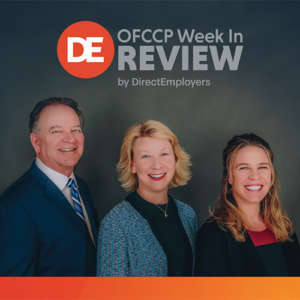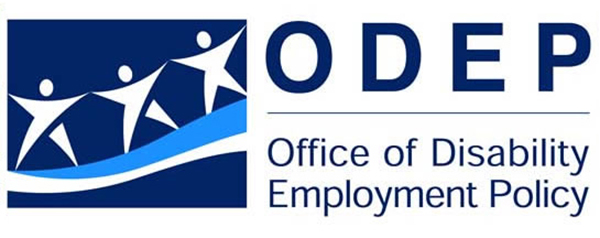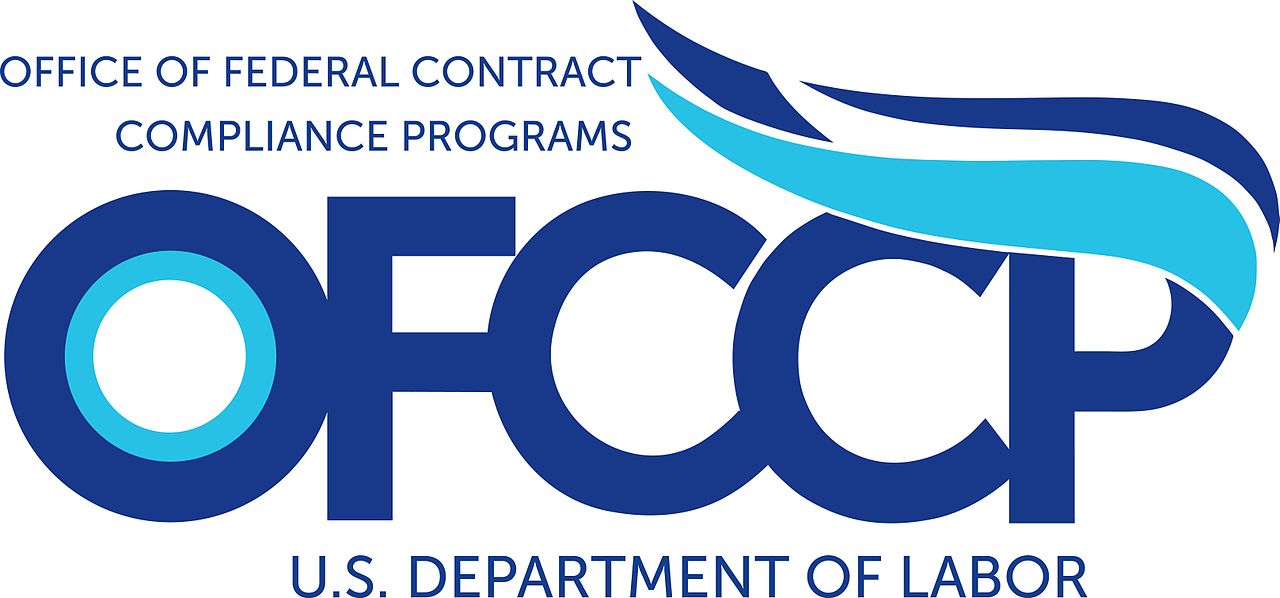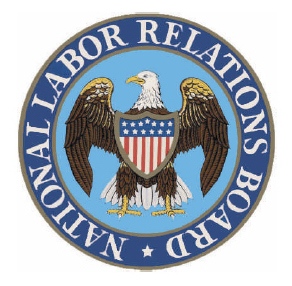
- ODEP Reveals its New Website
- JAN Addresses Challenges for IWDs When Returning to Work During the Pandemic
- EEOC To Hold Public Meeting on Conciliation
- OFCCP Updated Two Website Tools
- NLRB Publishes New Across-the-Board Legal Standard to Deal With Abusive Employees
- OFCCP to Present TRICARE Compliance Assistance
Monday, August 10, 2020: ODEP Reveals its New Website

Monday, August 10, 2020: JAN Addresses Challenges for IWDs When Returning to Work During the Pandemic

Monday, August 10, 2020: EEOC To Hold Public Meeting on Conciliation

On Wednesday, August 17, 2020, the Agency will post attendance instructions on its website. Closed captioning services will be available.
Monday, August 10, 2020: OFCCP Updated Two Website Tools

National Pre-Award Registry
This tool lists contractors that have completed an OFCCP compliance evaluation in the last two years without any violations. Federal contracting officers use the Registry during the contracting process. The site is updated daily and will allow users to:
-
- Search by company, name, and state
- Export the search results as a Microsoft Excel file
- Access the Pre-Award Registry from the OFCCP website
VEVRAA Hiring Benchmark Database
This tool provides federal contractors a more streamlined way to identify their VEVRAA Hiring Benchmarks each year for their affirmative action program. This landing page is located under the Quick Link “Compliance Resources” on the VEVRAA page. The site allows users to:
-
- See the current national benchmark for hiring
- Find all datasets to develop individualized hiring benchmarks
- Access the VEVRAA Hiring Benchmark database from the OFCCP website
Monday, August 10, 2020: NLRB Publishes New Across-the-Board Legal Standard to Deal With Abusive Employees

In this case decision, the National Labor Relations Board (NLRB) has now consolidated into a single legal standard the circumstances under which an employer subject to the National Labor Relations Act (NLRA) may impose discipline on abusive employees without violating the employee’s Section 7 NLRA rights to engage in “protected concerted activity.” Until last Monday, several different NLRB legal standards had applied depending on the context in which the alleged protected concerted activity occurred.
The new homogenous NLRA legal standard for employees asserting their Section 7 rights follows the Board’s Wright Line, 251 NLRB 1083 (1980) case decision. Wright Line has required for the last forty years that an employee engaging in “concerted protected activity (or activities),” will not be subject to discipline for abusive conduct, if the employee is able to show three elements of proof:
- the employee engaged in Section 7 concerted activities;
- the employer knew of such activity; and
- the employer had animus against the Section 7 activity (which the employee must prove with evidence sufficient to establish a causal relationship between the discipline and the Section 7 activity).
If the employee is able to prove these three elements, an employer may rebut the evidence by proving it would have taken the same adverse employment action even in the absence of the Section 7 activity.
Background
The Board’s General Motors case decision last week arose against the background of rising interest in the issue of how far an employee may lawfully go when criticizing working conditions, managers or an employer. Employee concerns have been steadily rising about “work” culture and the terms and conditions of work an employer may impose upon employees. Moreover, with the advent of social media streams such as Twitter, Facebook, and Instagram, there are more “soapboxes” available to employees to publicly “shame” managers and their employer. This increased access to public forums, as well as the increased partisan nature of social discourse in recent years, worried the Board that the recent increased vitriol could undermine an employer’s right “to maintain order, respect, and a workplace free from invidious discrimination.”
Until recently, the precise legal test the NLRB used to determine whether such abusive conduct or behavior was protected from disciplinary action under Section 7 of the NLRA, no matter how vile, varied depending upon the context and location of the criticism. The NLRB has now homogenized its analysis into a single test to clear some of the “legal clutter” that could otherwise confuse parties litigating the issue of when an adverse employment action is appropriate for abusive conduct or statements made during the course of an employee’s Section 7 activities.
By homogenizing the standard of review into one test, rather than maintaining different tests based on the different circumstances when the alleged abusive conduct occurred, the NLRB focused on the causation of the discipline that would occur in response to the employee’s abusive conduct. Specifically, if the employer’s adverse employment action occurred because of the abusive conduct or derogatory language, without consideration of the Section 7 activities which had given rise to the at-issue conduct or language, then that conduct or language does not enjoy the protections Section 7 of the NLRA provides to employees. This is because the NLRB found that abusive conduct that occurs in the context of Section 7 activity is analytically separable from the Section 7 activity itself, which is properly protected under the NLRA.
What is Different After the GM Case Descision?
Before last week’s General Motors’ decision, the NLRB had given employees in some contexts leeway for impulsive behavior when engaged in concerted activity Section 7 protects based on the rationale that “disputes over wages, hours, and working conditions are among the disputes most likely to engender ill feelings and strong responses.” The current NLRB, however, found this historical rationale overstated, and that employers should be empowered to prevent abusive conduct in the work environment to protect against ad hominem attacks against other employees and racial slurs, to use but two examples of employee misconduct in which the NLRB voiced concern in the GM case.
Going forward, the General Motors ruling provides employers the means to determine whether discipline is appropriate for disparaging or abusive remarks criticizing the employer’s work conditions. If an employer would not have permitted those disparaging or abusive remarks in any other context, then an employer can show that the discipline is due to the conduct itself, regardless of the concerted activities associated with the conduct. This analysis provides employers more authority to enforce appropriate decorum necessary in the work environment to ensure stable working relationships and stamp out potential discriminatory employee conduct.
Tuesday, August 11, 2020: OFCCP to Present TRICARE Compliance Assistance

OFCCP published the Final Rule, “Affirmative Action and Nondiscrimination Obligations of Federal Contractors and Subcontractors: TRICARE Providers,” on July 2, 2020.
The Agency has now announced it will hold a public webinar to provide compliance assistance for stakeholders on the Final Rule.
Webinar Details
Date: Monday, August 31, 2020
Time: 2:00 pm to 3:00 pm Eastern Time
Register to Attend
The OFCCP will focus on regulatory updates for federal Government contractors and subcontractors; however, all are welcome to attend.
THIS COLUMN IS MEANT TO ASSIST IN A GENERAL UNDERSTANDING OF THE CURRENT LAW AND PRACTICE RELATING TO OFCCP. IT IS NOT TO BE REGARDED AS LEGAL ADVICE. COMPANIES OR INDIVIDUALS WITH PARTICULAR QUESTIONS SHOULD SEEK ADVICE OF COUNSEL.
SUBSCRIBE.
Compliance Alerts
Compliance Tips
Week In Review (WIR)
Subscribe to receive alerts, news and updates on all things related to OFCCP compliance as it applies to federal contractors.
OFCCP Compliance Text Alerts
Get OFCCP compliance alerts on your cell phone. Text the word compliance to 55678 and confirm your subscription. Provider message and data rates may apply.
